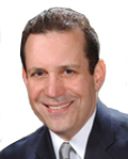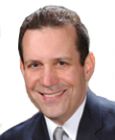“Without proper training on how to make wise choice…the chances are very slim anyone will make them.” --Sidney Madwed
Striving for socially defined success is the path most people pursue for seeking fulfillment. When I interviewed trailblazing women in fields of science, government, business, media, entertainment, and sports for my study on Women, Motivation, and Success, I knew that their achievements had given them notoriety, wealth, and power—but were they fulfilled? In spite of their fame and recognition, the very standard by which many define success, their answers to this question often opened our conversation about what success and fulfillment mean.
One of the women who I interviewed and who became a lifelong friend was Donna Summer, a world-renowned vocalist whose success, she said, “came overnight.” She had actually achieved “a reasonable amount success” in Germany before becoming a celebrity in the United States. Living in Germany, she travelled back to the United States learned that she was dubbed the Disco Diva. She recalled the shock of her own celebrity status upon returning to the U.S. and shared her story for the study about how success competed with fulfillment.
Driving down Sunset Boulevard, Summer recalled doing a double-take as she passed by her image, “larger than life,” on a billboard. She said that overnight she had been catapulted into a foreign world, into a life of an artificial persona, describing guilt for having participated in the image making: “They took a fundamental part of my being—my voice, which I had always believed was a gift—and through ‘the packaging of Hollywood’ elevated me to superstar status. But was this me?”
Raised in a religious family, she expressed her embarrassment about posing as the Disco Diva: wild, sexy, and lusty. Caught in the whirlwind of success, with private planes whisking her from one sold-out concert after another, she was singing more often and to more people than ever before yet feeling less fulfilled than at any other time of her life. Summer had lost her sense of self and could no longer maintain the vital relationships with family, friends, and God that had previously grounded her. In sum, her growing celebrity status had intensified the complexity of access to her true self.
Most seek attention and recognition, but it is attention and recognition of our genuine qualities, expressed authentically, and our critical relationships, that sustain our sense of meaning and purpose—enabling us to thrive. Donna’s voice was a genuine gift, and she had used it as an expression of her creativity and love of God. However, when she allowed her voice to be packaged by others, she grew disconnected from herself, feeling alienated, and disingenuous.
When I first met her Los Angeles mansion in 1980, I recall her pointing to a wall showcasing her platinum and gold records, among other awards, the symbols of success that she said “had lured” her from her sustaining relationships. She disclosed how she began “to use drugs” and “live in the fast lane.” However, the meteoric rise to fame brought her on a rollercoaster of emotions, contrasted by the dramatic lows she felt from within.
On one occasion I accompanied her to a concert. The crowd, thrilled with her performance, stood for every song, and held lighters honoring her at the event. Though the concert ended, they kept clapping for yet another encore. When she took her final bow, she hugged me and said nothing. Later in her dressing room, she reflected: “It’s hard to describe the experience of moving from overflowing applause of thousands of crowds of people who you don’t really know you to the total silence when the curtain falls. I really feel alone.”
Donna realized what she had lost. She later told me that in the midst of her stardom her sister came to her home to tell that she was losing her path. She brought a Bible over for encouragement. Reactive to the mild, yet pointed, confrontation, Donna screamed at her, throwing her sister out of her home, and tossing the Bible at her as she exited. Later, distraught, Donna told me that she picked up the Bible, and her eyes fell upon these words: “My peace I give to you; not as the world gives do I give to you. Let not your heart be troubled, neither let it be afraid.” (John 14:27)
Donna felt as if God spoke to her directly. She fell to the ground and cried—and, afterwards, “though not perfectly” as she said, she “worked to reclaim the path of her true self.”
Our world offers many answers to our search for fulfillment: a high-paying job, a comfortable home, a perfect physique, a potpourri of various and conflicting “answers” and enticements. While these may bring pleasure and give us a sense of achievement, do they leave us fulfilled? While some seek to discover these answers within the home, others go outside, and may be distracted or cling to answers from those trained to provide guidance. Matsuo Basho says it well: Our task is “not to follow in the footsteps of the masters but to seek what they sought.” We must not prepare our children or ourselves to walk in someone else’s path but to encounter the discovery.
Many studies confirm that material wealth is not the solution to our widespread or sustaining longing. Despite unprecedented affluence, health care technologies, and advances in modern culture, few claim to be truly satisfied. Mihaly Csikszentmihalyi (American Psychologist; October, 1999) revealed that those who have more money to spend do not report greater subjective well being. Strikingly, children of the lowest socioeconomic stratum have been reported to have the highest degree of happiness, while upper middle-class children generally had the lowest (David G. Myers & Ed Dieson, American Psychologist, January, 2000). In fact, scientific studies increasingly lead skeptics to the conclusion that our psycho-spiritual endeavors produce greater and more sustaining results over the absence of these components (Thomas Plante & Alan Sherman, Faith and Health, 2001); and the overwhelming results of outcome studies (Harold Koenig, Handbook of Religion and Health, 2012) demonstrate hundreds of documented studies confirming the powerful results of spirituality and religion for well-being (physical, emotional, and spiritual).
From Plato’s maxim, “A healthy mind in a healthy body” and throughout the time-tested message of all the Great World Religions, we learn from very wise hearts that we become crippled when we lose touch with our soul. Fulfillment evolves when nurturing our whole being.
“Here is my secret, a very simple secret;
It is only with the heart that one can see right;
What is essential is invisible to the eye.”
--Antonine de Saint-Exupery
John T. Chirban, Ph.D., Th.D. is a clinical instructor in psychology at Harvard Medical School and author of True Coming of Age: A Dynamic Process That Leads to Emotional Stability, Spiritual Growth, and Meaningful Relationships. For more information please visit www.drchirban.com, https://www.facebook.com/drchirban and https://twitter.com/drjohnchirban.




